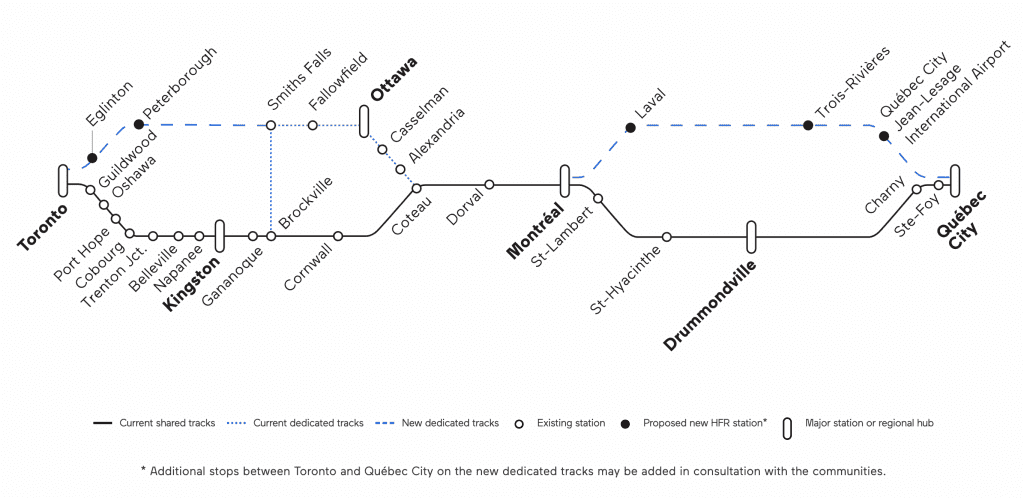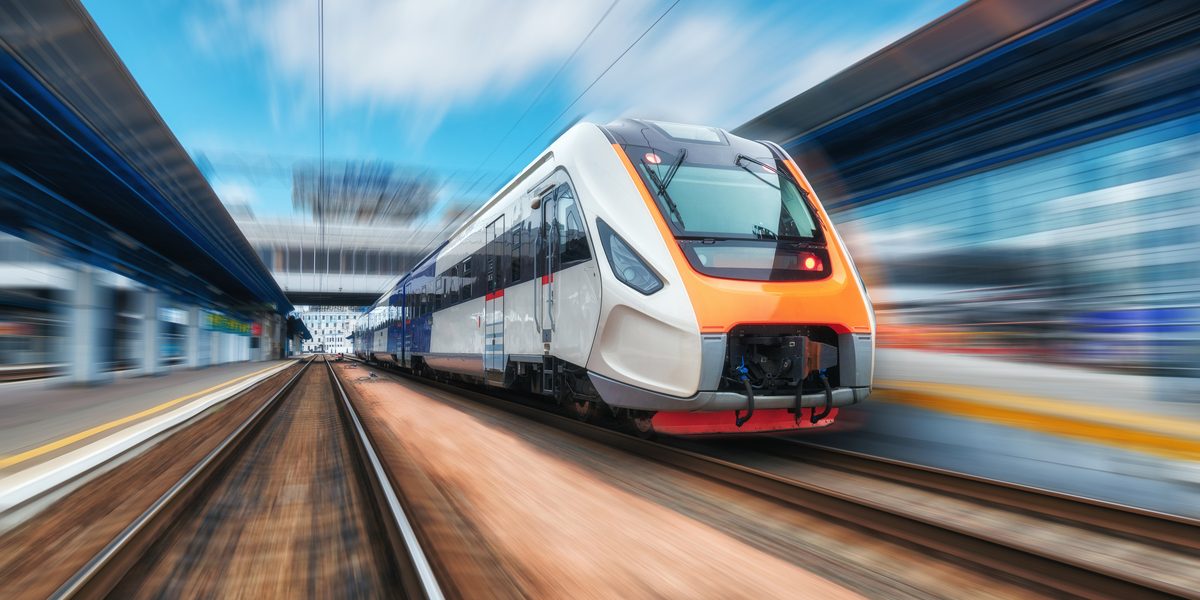Last year, Canada announced that a new high frequency rail could be coming between Toronto and Quebec City, and now, thanks to a new update, it looks like we’re one step closer to this reality.
In a new update, the government of Canada announced a big step in the process for the High Frequency Rail project, the launch of the Request for Qualifications.
This means that they will “identify and qualify up to three top candidates who will be invited to participate in the Request for Proposals (RFP) process,” which is expected to begin this summer 2023.
“The Request for Qualifications represents an important step in the procurement process for the High Frequency Rail project,” said Minister of Transport Omar Alghabra.
“HFR will reduce pollution in the transport sector, provide better and faster service to travellers and create good jobs for the middle class.”
Related Posts:
10 Ossington strip restos & bars you need to check out
10 of the best vintage stores to check out in Toronto
For those who need a refresher on the HFR, according to the government back in March 2022, the “High Frequency Rail will transform passenger rail service in Canada through the creation of a faster, more frequent, more accessible and more sustainable rail service among the major centres of Québec City, Trois-Rivières, Montréal, Ottawa, Peterborough and Toronto.”
VIA Rail previously stated that trains could travel at speeds of up to 200 kilometres per hour, reducing travel times from Ottawa to Toronto to as low as 3 hours and 15 minutes from current travel times of approximately 4 hours and 30 minutes.
We are building a better, faster, and greener train network. The High Frequency Rail Project will mean better @VIA_Rail service for cities between Toronto and Quebec City. Details👇https://t.co/QQR5s2YlzL pic.twitter.com/N6YKNCaGxG
— Omar Alghabra (@OmarAlghabra) March 9, 2022
The government has stated that the High Frequency Rail is the largest transportation infrastructure project that Canada has seen in decades.
VIA Rail and its employees will also play a part in the discussions as the project continues to evolve.

“Many key benefits would be provided to travellers through an electrified High Frequency Rail system, including shorter travel times and faster trains, improved on-time performance, higher frequencies, and more direct routes with improved connectivity between cities and to other modes of transportation,” said Annie Koutrakis, Parliamentary Secretary to the Minister of Transport.
If all goes to plan, the High Frequency Rail service could be fully operational in the early 2030s.

